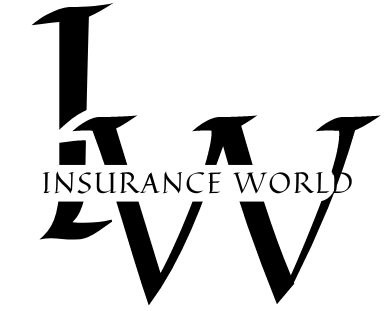Introduction: Terrorism insurance is a specialized form of insurance coverage designed to protect individuals, businesses, and organizations against the financial losses and liabilities resulting from acts of terrorism. In an increasingly uncertain world, the threat of terrorism has become a significant concern for individuals and entities worldwide. Terrorism insurance provides essential financial protection against the unpredictable risks and damages caused by terrorist acts, offering peace of mind and security for those who may be impacted. In this comprehensive guide, we’ll delve into the intricacies of terrorism insurance, from its importance to coverage options and risk management strategies.
SEO
- Understanding Terrorism Insurance:
- Terrorism insurance is a type of insurance coverage that provides financial protection against losses or damages resulting from acts of terrorism, including bombings, shootings, hijackings, sabotage, and other violent or malicious acts intended to cause harm.
- It covers a wide range of terrorism-related risks, including property damage, business interruption, liability claims, loss of life, medical expenses, and other consequential losses resulting from terrorist acts.
- Terrorism insurance policies are typically offered by insurance companies in collaboration with government-backed terrorism insurance programs or pools, providing coverage options, terms, and conditions tailored to the specific needs and exposures of policyholders.
- Importance of Terrorism Insurance:
- Financial Protection: Terrorism insurance provides essential financial protection for individuals, businesses, and organizations against the potentially catastrophic costs of terrorist attacks, including property damage, business interruption, liability claims, and loss of life.
- Regulatory Requirements: In some countries, industries, or sectors deemed at higher risk of terrorist attacks, terrorism insurance may be required by law, regulatory authorities, or lenders as a condition of obtaining insurance coverage or financing.
- Risk Management: Terrorism insurance plays a crucial role in risk management for businesses and organizations, helping them mitigate financial risks, liabilities, and uncertainties associated with the threat of terrorism.
- Types of Terrorism Insurance Coverage: a. Property Terrorism Insurance:
- Property terrorism insurance provides coverage for physical damage to buildings, structures, equipment, and other property resulting from terrorist acts, including bombings, explosions, arson, or vandalism.It covers repair or replacement costs for property damage caused by terrorist attacks, as well as additional expenses incurred for cleanup, debris removal, and security enhancements.
- Business interruption terrorism insurance provides coverage for loss of income, operating expenses, and other financial losses incurred due to the temporary closure or disruption of business operations resulting from terrorist acts.It compensates businesses for lost revenues, extra expenses, and non-recoverable costs incurred during the period of business interruption caused by terrorist attacks.
- Liability terrorism insurance provides coverage for legal liabilities arising from terrorist acts, including bodily injury, property damage, wrongful death, or other losses suffered by third parties as a result of a terrorist attack.It protects businesses, property owners, event organizers, and other entities from lawsuits, claims, judgments, and legal defense costs associated with terrorism-related liabilities.
- Workers’ compensation terrorism insurance provides coverage for medical expenses, disability benefits, and other financial losses incurred by employees or workers injured or killed as a result of a terrorist attack.
- It compensates employees for injuries, illnesses, or fatalities resulting from terrorism-related incidents that occur during the course of employment.
- Factors Affecting Terrorism Insurance Premiums:
- Location: The geographic location of the insured property or business can impact terrorism insurance premiums, with higher rates for properties or businesses located in areas deemed at higher risk of terrorist attacks.
- Property Value: The value, size, type, and occupancy of the insured property can influence terrorism insurance premiums, with higher rates for larger, higher-value properties or properties with high occupancy levels.
- Industry or Sector: The industry, sector, or business activities conducted by the insured entity may affect terrorism insurance premiums based on perceived risks associated with certain industries or sectors deemed at higher risk of terrorist attacks.
- Security Measures: The presence of security measures, such as security guards, surveillance cameras, access controls, and perimeter fencing, can help mitigate terrorism risks and may result in lower terrorism insurance premiums.
- Selecting the Right Terrorism Insurance Coverage:
- Assess Risk Exposure: Evaluate the specific terrorism risks and exposures associated with the insured property, business, or operations, including factors such as location, industry, property value, and security measures.
- Review Policy Options: Research and compare terrorism insurance policies from multiple insurers, reviewing coverage options, premiums, deductibles, and policy terms to find the best fit for your needs.
- Customize Coverage: Tailor your terrorism insurance coverage to meet your unique needs and risk tolerance, considering factors such as property value, business operations, liability exposures, and desired coverage limits.
- Coordinate with Other Policies: Coordinate terrorism insurance coverage with other insurance policies, such as property insurance, liability insurance, and workers’ compensation insurance, to ensure comprehensive protection against terrorism-related risks.
- Risk Management Strategies for Terrorism Preparedness:
- Security Measures: Implement security measures to deter, detect, and respond to potential terrorist threats, including physical security enhancements, surveillance systems, access controls, and employee training programs.
- Emergency Response Planning: Develop and implement emergency response plans for terrorist attacks, including evacuation procedures, crisis communication protocols, and coordination with law enforcement agencies and first responders.
- Business Continuity Planning: Establish business continuity plans to ensure the resilience and continuity of business operations in the event of a terrorist attack, including backup systems, remote work arrangements, and alternative supply chains.
- Collaboration and Information Sharing: Collaborate with government agencies, law enforcement authorities, industry associations, and other stakeholders to share information, intelligence, and best practices for terrorism prevention and response.
Conclusion:
Terrorism insurance is a vital component of risk management for individuals, businesses, and organizations facing the threat of terrorism. By understanding the importance of terrorism insurance, selecting the right coverage options, and implementing effective risk management strategies, policyholders can protect their assets, liabilities, and financial interests against the uncertainties of terrorist attacks. With comprehensive terrorism insurance coverage in place, individuals, businesses, and organizations can navigate the challenges and risks of terrorism with confidence and resilience, knowing that they are financially protected and prepared to respond to the impacts of terrorism.

